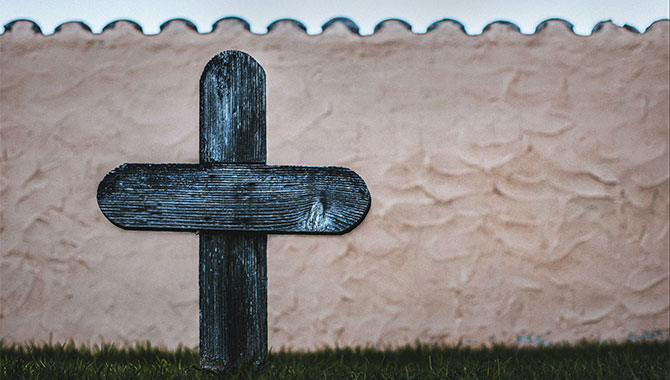Weeping may linger for the night, but joy comes with the morning. ~Psalm 30:5
On Thursday morning, I helped our son Ro, who has been living with us for the summer, pack his Subaru with everything he would need for his final year of college. We didn’t say much, and I tried to avoid eye contact with him as much as possible. I knew what was coming. When we crammed the last load of clothes in his car, I felt the tears welling up in my eyes.
We gave each other a heart felt hug. Ro said, “Thanks for everything Dad.” The tears came and I walked slowly to my car, unable to speak. I just waved good-bye.
Margaret Metzgar in A Time to Mourn, A Time to Dance writes, “Life is a series of hellos and good-byes, of gains and losses. They come as a matched set. They are universal. Expecting to experience life without loss would be like trying to create a tapestry without thread.”
The question is not so much will we have losses, but how will we live with our losses? How will we live with changes in the seasons? When “weeping lingers for the night” (Psalm 30:5), does joy truly come in the morning? Can our sadness turn to gladness? Do tears become laughter? Does mourning give way to dancing? Sorrow to joy?
“We are sad because of all we have lost,” says Henri Nouwen. The pandemic has magnified our losses. Loss of life. Loss of trust. Loss of security. Loss of our sanctuary. Loss of routines and rituals. Loss of community. Can that which is lost be found?
Think of all our losses right now, the many places in our life where we have lost something precious and beautiful. Maybe we have lost a friend to cancer, a dog to old age, a child to disease or an accident, a spouse to death. Maybe a long-term relationship closed with a painful end. Perhaps we lost our job or house in troubled times. Maybe we feel broken and lost because of emotional or physical abuse. Losses can accumulate and sit in our hearts.
“Life sometimes seems like just one long series of losses,” writes Nouwen.
I remember walking our children Andie and Ro to Mancos Elementary School when they were in the first and second grade. It was a time of wonder and delight. One day they said, “Daddy, you don’t have to walk us to school any more.” Something died as something was born that day.
I remember when I was in the eighth grade, walking past Granddad Albert’s open casket in the small United Methodist Church in rural Kansas. Things changed from that moment on.
Pastor Jean from Cortez U.M.C. talks fondly about the Mountain Sky Conference of the United Methodist Church when she started ministry. She says we always had conservatives and progressives in the church, and it was ok. We agreed to disagree, but we valued one another and broke bread together. Both of us mourn the loss of kinship. What has happened?
Henri Nouwen says, “In the afternoon and evening of life there are painful losses through conflict, misunderstanding, failure, anger, and resentment. We lose hopes and dreams not only through age, but also through the discovery of corruption and betrayal among people we trusted for a long time.”
What do we do with our losses? Can the lost be found? Can mourning turn to dancing?
We can ignore and deny our losses. We can blame our losses on other people (scapegoating). We can be masterful stoics. Or we can mourn our losses. “We can shed tears over our losses and allow ourselves to grieve deeply,” says Nouwen. “We can never get to the joy if we don’t dare cry, if we don’t have the courage to weep, if we don’t take the time to experience the pain.”
Jesus wept (John 11:35). He fully felt his pain and the pain of the world. He wept in the garden before his death. His tears became like “drops of blood falling to the ground” (Luke 22:44).
Something happens when we mourn. “Tears are agents of resurrection and transformation,” says Alan Jones in Soul Making. It is true that sometimes we need a good cry. Mourning and tears break open our hearts and let the light in. “Mourning and dancing are part of the same movement of grace,” writes Nouwen. Good mourning softens our hearts.
When my dad died, I worked hard to be stoic. Shortly after his death, our beloved dog Luke died. I dug a grave for Luke in a field next to our home. I wrapped him in a blanket and carried him to his grave with the snow falling all around us. When I placed him in the ground, the tears came from the grief I had been holding in. Deep heartfelt tears began the process of letting my pain go and letting the light back in.
Between the pandemic, our civil discord, and our personal lives we have had a great deal of loss in our lives lately. How will we live with our losses?
May we recognize our losses and mourn.
May our deep tears be cathartic and lead to resurrection joy.
Blessings and peace,
Craig

